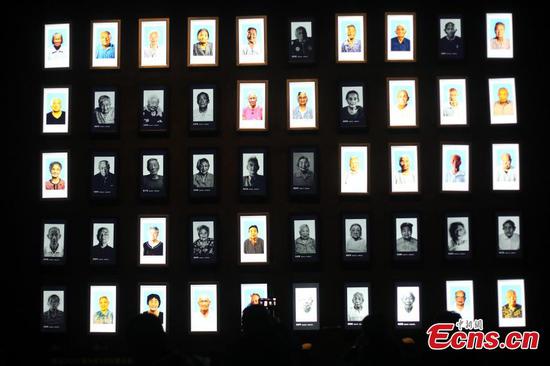
Citizens shop for vegetables in a smart farm market in Changsha city, Hunan province. (Photo/Xinhua)
By 2023, the global market for smart cities is estimated to grow to $717.2 billion from $308 billion in 2018, at a compound annual growth rate of 18.4 percent, the company said.
In fact, the adoption rate of smart cities solutions is growing rapidly in China. Not only some big cities but small and mediumsized cities are actively embracing the digital solutions.
For instance, Yingtan, a city in Central China's Jiangxi province, is accelerating the push for building an internet of things-enabled digital economy.
By 2018, Yingtan's 1.1 million people had connected to the internet of things. And more than 200 internet of things companies have been set up in the city, helping Yingtan to better embrace the digital transformation.
So far, the city has officially provided more than 40 kinds of internet of things services, including 5G services, smart transportation, smart water utilities, smart streetlights and smart parking.
For instance, 95 percent of the local families have installed smart water meters, which help save 2.4 million metric tons of water a year.
Yao Yao, head of property investment and management consultancy JLL's research in China, said smart cities' construction plays a more important role in China when compared to other markets.
"On the one hand, the practice of smart cities will help alleviate the increasing burden on traditional infrastructure systems caused by the rapid increase in urban population. On the other hand, intelligent application in fields including travel, safety, health and energy will improve the quality of all aspects of the residents' life. And the key issue is how to meet people's growing need for a better life," Yao noted.
Seeing the growing potential in smart cities development, an increasing number of tech companies are ramping up the efforts to carve out a stake in the rapidly expanding sector.
Beijing Percent Information Technology Co Ltd has seen huge potential in the market. So far, it has served more than 10,000 clients both at home and abroad, including a number of government customers.


















































